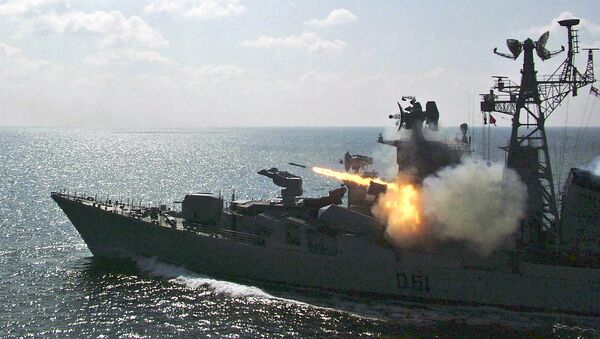According to a top official in the Ministry of External Affairs, India-Sri Lanka relations were crucial for India to make its presence strongly felt in the Indian Ocean. India was initially optimistic of Sri Lankan President Maithripala Sirisena's support but the recent signals from Colombo have dampened its optimism in this respect.
Sri Lanka's inclination towards China despite Srisena's initial announcements of scrapping some major deals with Beijing is a major concern for India.
India has another area of concern about 3,000 kms north of Colombo. This is the Gwadar port in Pakistan that is turning into a hub for passing Chinese Navy ships. China also plans to deploy warships to safeguard the Gwadar port, a warm water gateway to the China-Pakistan Economic Corridor.
The two spheres of Chinese naval activity in its neighbourhood has compelled the Indian Navy to closely monitor the activity around Gwadar port.
"The security situation in the Indian Ocean region so fragile that India has to adopt the policy of "prepare for war and plan to conquer" rather than "prepare for war but hope for peace". India is adopting the strategy of projection of power in the region. Considering the geo-political environment in the Indian Ocean region, India will have to implement its strategy without any support as several of its Indian Ocean allies are hobnobbing with China," former Indian diplomat, Yogendra Kumar who had served in Philippines and Central Asian countries, told Sputnik.
He further added that, "there are reports of Sri Lanka's plans to sell a major stake in Hambantota port to China. This is really a concern for India. Clearly, China is stepping up its operations in the Indian Ocean which will have greater ramifications."
Therefore, India has adopted a two pronged strategy. First is to keep a close eye on Chinese naval activity in eastern Indian Ocean and second, to aggressively push for dominance in the region.




